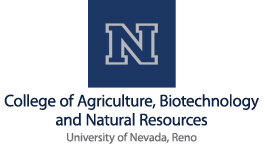Team:Nevada/Transgenic Plants
From 2010.igem.org
(→Transgenic Plants: into the Wild) |
|||
| Line 21: | Line 21: | ||
</html> | </html> | ||
| - | <p> | + | |
| + | <p style="text-align:center;"><span style="text-decoration:underline;font-weight:bold">Do You Have A Green Thumb?</span></p> | ||
| + | <p>The Nevada iGEM team along with a handful of other teams this year are looking to expand iGEM to the world of plants. iGEM will finally have a medium to explore eukaryotic gene manipulation without requiring yeast farms or human experimentation. Plants provide a kingdom of exploration that could make iGEM a potential attractant to commercial biotech firms as it brings the possibilities of synthetic biology out into the open from the patents and trade secret shadows which a lot of firms rely on today.</p> | ||
| + | |||
| + | <p>Engaging a whole new realm of organisms requires fundamental understanding of those organisms and how they differ from the current models. That understanding from iGEM teams is essential to its success. Obviously, plants come with their own unique promoters, activators, and repressors with which to play. We added a few plant promoters to the iGEM registry for future teams to use. Also, there will need to be new consideration as to what types of proteins with which we can transform the plants. Fortunately, some essential eukaryotic proteins that iGEM has dealt with, like the fluorescent proteins, have already been used in plant experimentation.</p> | ||
| + | |||
| + | As far as testing new models, we believe our NT cells may provide a cheaper, faster alternative to teams interested in experimenting with plants. Also, the NT cells are safer to use and pose less risk to the environment then experimenting with actual plants. | ||
Revision as of 05:19, 26 October 2010
Transgenic Plants: into the Wild
Do You Have A Green Thumb?
The Nevada iGEM team along with a handful of other teams this year are looking to expand iGEM to the world of plants. iGEM will finally have a medium to explore eukaryotic gene manipulation without requiring yeast farms or human experimentation. Plants provide a kingdom of exploration that could make iGEM a potential attractant to commercial biotech firms as it brings the possibilities of synthetic biology out into the open from the patents and trade secret shadows which a lot of firms rely on today.
Engaging a whole new realm of organisms requires fundamental understanding of those organisms and how they differ from the current models. That understanding from iGEM teams is essential to its success. Obviously, plants come with their own unique promoters, activators, and repressors with which to play. We added a few plant promoters to the iGEM registry for future teams to use. Also, there will need to be new consideration as to what types of proteins with which we can transform the plants. Fortunately, some essential eukaryotic proteins that iGEM has dealt with, like the fluorescent proteins, have already been used in plant experimentation.
As far as testing new models, we believe our NT cells may provide a cheaper, faster alternative to teams interested in experimenting with plants. Also, the NT cells are safer to use and pose less risk to the environment then experimenting with actual plants.

| 
| 
| 
| 
|
|---|
 "
"
